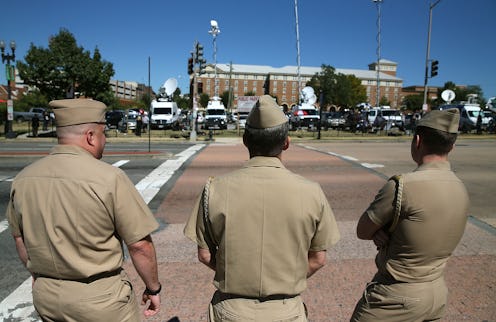News
Could Navy Yard Shooting Have Been Prevented?
A Department of Defense investigation into the mass shooting at the Washington Navy Yard last fall has indicated that the tragic incident could have been prevented. Supervisors of gunman Aaron Alexis noticed his erratic and disturbing behavior well before the shooting, and apparently missed several opportunities to intervene. On Sept. 16 last year, Alexis used his security credentials to gain access to the Navy Yard, where he killed 12 Navy civilians and contractors.
The report lists several red flags about Alexis that should have alerted the Defense Department to a potential threat, including missing information in his background check and failure of his employer — government contractor The Experts Inc. — to report behaviors that indicated psychological instability.
It reads:
At various points during Alexis’ military service and subsequent employment as a cleared contractor — from the background investigation in 2007 to the disturbing behaviors he exhibited in the weeks leading up to the shooting — the review revealed missed opportunities for intervention that, had they been pursued, may have prevented the tragic result at the Washington Navy Yard. When examining events in Aaron Alexis’ history individually, they yield little in the way of warning. Combined, however, they demonstrate a pattern of misconduct and disturbing behavior that would have prompted investigators, for a position of trust in the Federal workforce, if they had been aware of his history in aggregate.
In the weeks before the shooting, police officers called to a hotel in Newport, Rhode Island, found that Alexis had taken apart the bed in his room because he believed someone was hiding under it, and taped a microphone to the ceiling to record the voices of the people he believed were following him. Alexis also told the officers that he believed he had a chip in his head.
The officers faxed a report of the incidents to the naval base security office, which did not act on the information.
In a press conference on Tuesday Defense Secretary Chuck Hagel said that the investigation revealed "troubling gaps" in the security screening process for those working with sensitive military data.
Hagel called for a complete overhaul of the system used to screen employees and contractors for security clearances. In a published memorandum he requested that a system of "continuous evaluation" be set up, which would screen those with security clearance in real time against records that could raise concerns.
